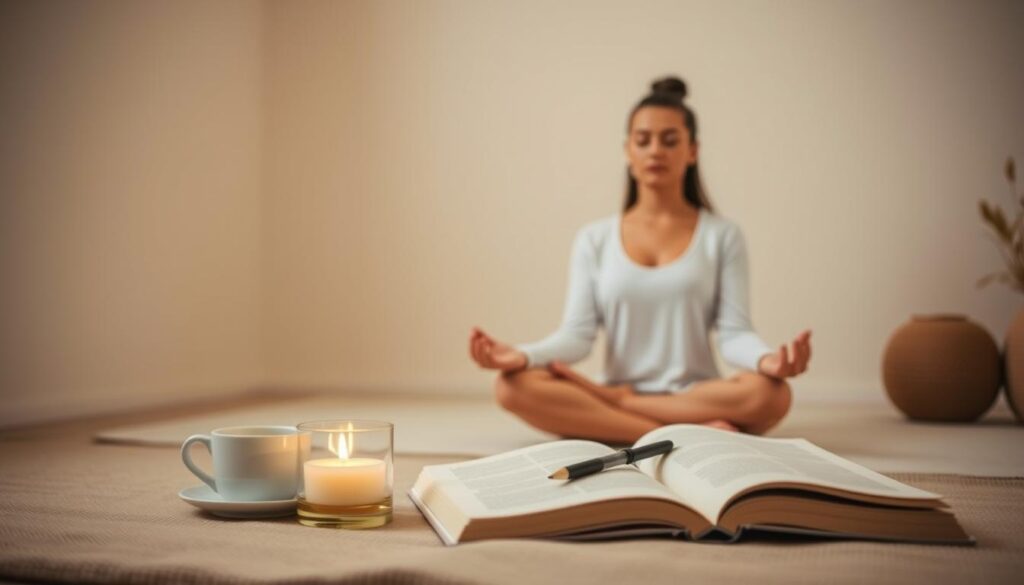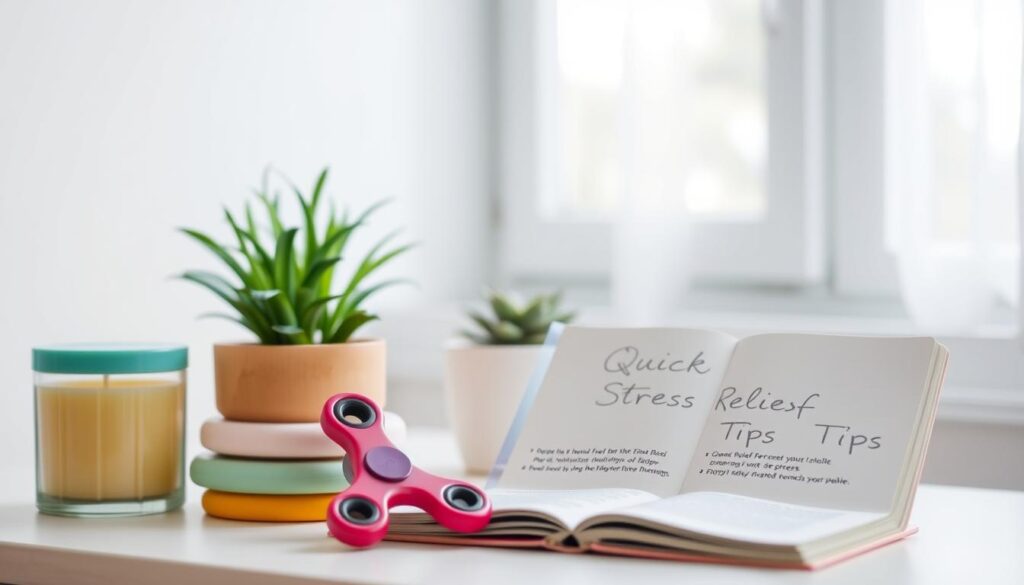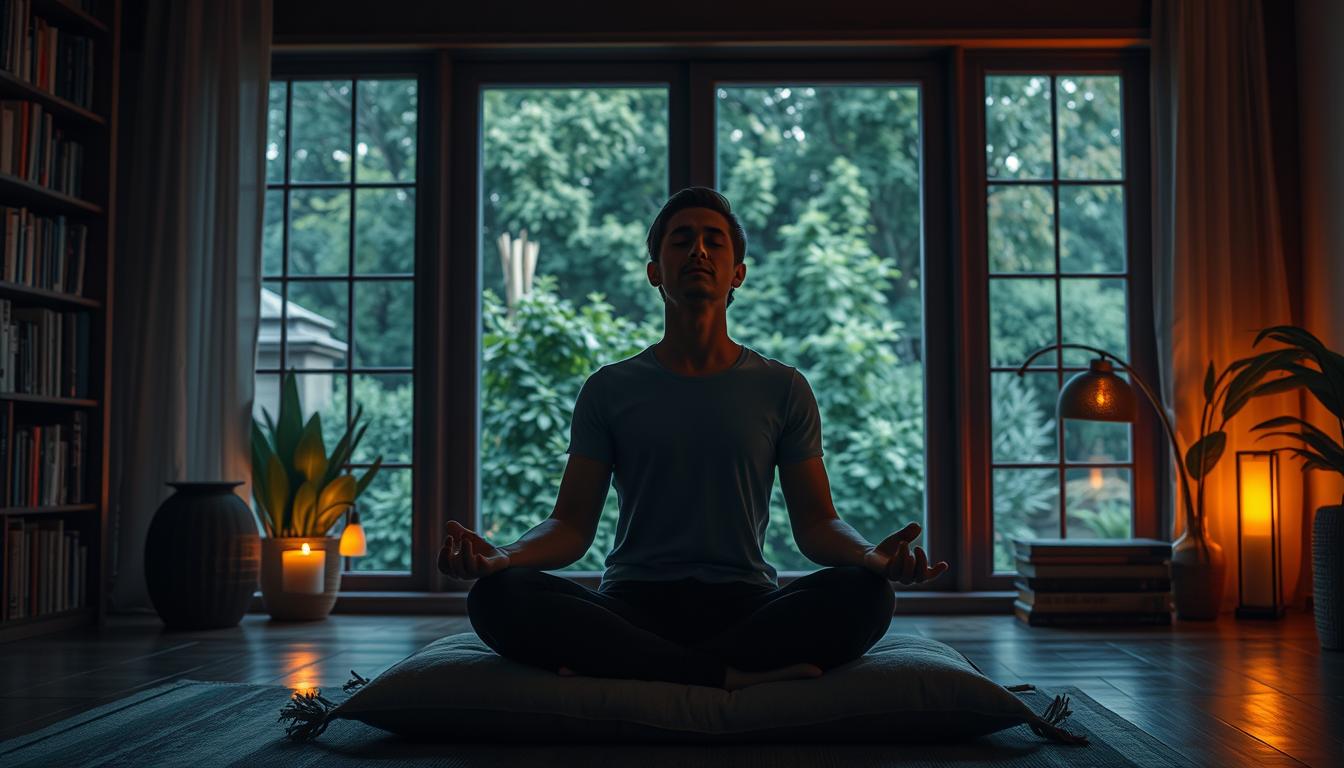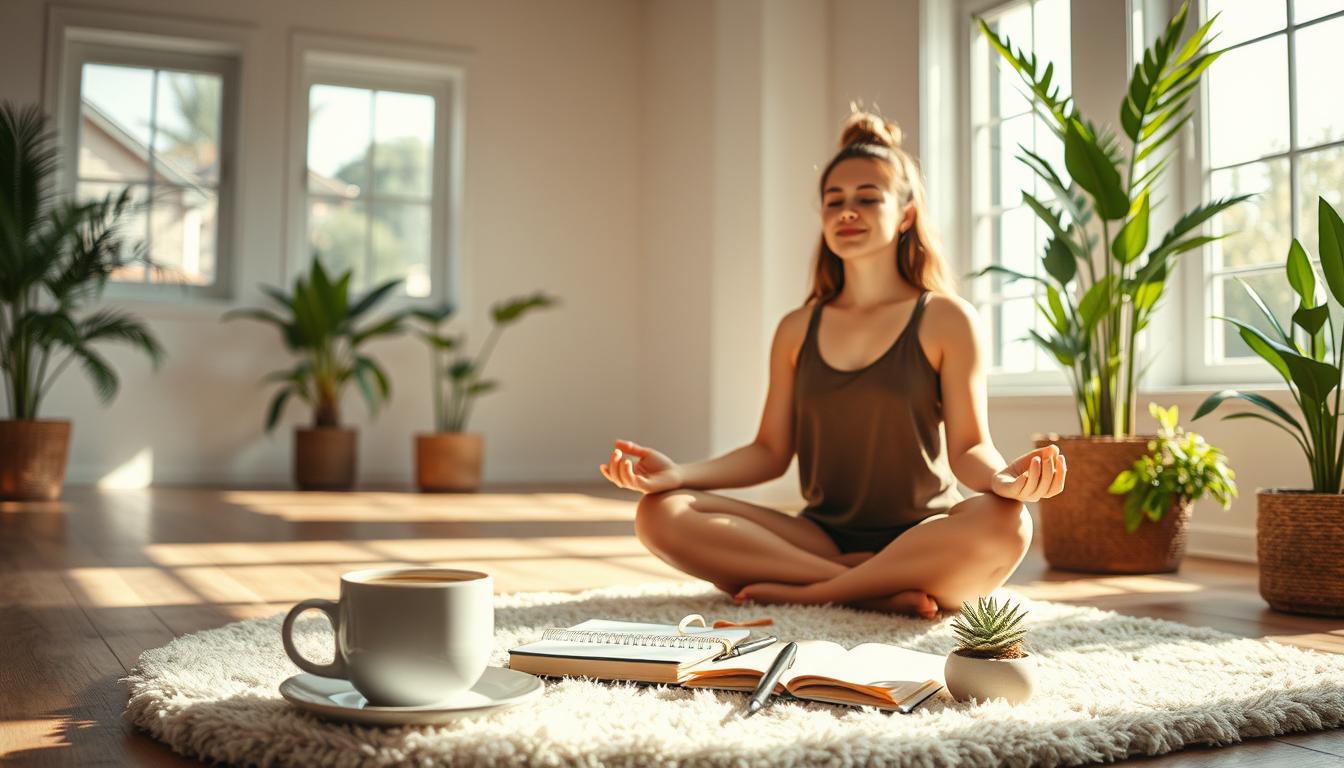Stress is an inevitable part of life, but it doesn’t have to control your day. Every day, millions of people face situations that trigger a stress response, yet many find ways to manage it effectively. Whether it’s through deep breathing exercises, meditation, or simply taking a moment to relax, there are practical strategies that can help you regain control.
Imagine taking a vacation in your mind—a place where worries fade away, and calmness takes over. This is the power of guided imagery, a technique that allows you to visualize a peaceful environment and find instant relaxation. Similarly, meditation isn’t just for quiet moments; it’s a powerful tool to combat negative thoughts and foster mindfulness in your daily life.
Physical activities like deep breathing and progressive muscle relaxation can also make a significant difference. These exercises target both mental and physical tension, helping you unwind and recharge. The best part? You can practice these techniques anywhere, whether at work or home, making them versatile tools for any situation.
Integrating these strategies into your routine can have a profound impact on your mental health and daily performance. By reducing anxiety and negative thought patterns, you can create a more balanced and fulfilling life. Remember, managing stress isn’t about avoiding challenges—it’s about finding healthy ways to cope and thrive.
Key Takeaways
- Stress is a natural response, but it can be managed with effective techniques.
- Guided imagery and meditation are powerful tools for relaxation and mindfulness.
- Physical techniques like deep breathing can reduce both mental and physical tension.
- Practical strategies can be adapted to fit any situation, whether at work or home.
- Integrating these techniques improves mental health and daily performance.
For more tips on reducing stress, visit the NHS guide on stress reduction1.
Understanding Stress and Its Effects on Your Life
Stress is your body’s natural response to demands or pressures. It’s like a built-in alarm system that helps you react to challenges. While stress can motivate you to meet deadlines or avoid danger, too much of it can harm your mental and physical health.
Imagine your heart racing or muscles tensing when you’re under pressure. These are signs of stress. Over time, chronic stress can lead to serious health issues like heart disease, diabetes, and a weakened immune system2. It can also affect your mental health, increasing the risk of anxiety and depression3.
Stress doesn’t just affect your body. It can also impact your relationships and daily life. For example, stress at work can lower productivity, and family challenges can strain relationships. Negative thoughts and self-talk can make stress worse, but recognizing these patterns is the first step toward managing them effectively.
Understanding how stress works is key to handling it. By knowing your personal stress responses and seeking support, you can find healthier ways to cope and improve your overall well-being.
Remember, stress is a natural part of life, but it doesn’t have to control your life. By recognizing its effects and taking small steps to manage it, you can create a calmer, more balanced you.
Essential Stress Management Techniques for a Calmer Life
Discover effective ways to manage stress and find peace in your daily life. These techniques are designed to help you relax and recharge, no matter where you are.
Guided Imagery, Meditation, and Deep Breathing
Guided imagery is a powerful method where you focus on a “happy place” to relieve tension and reset your mind. Meditation, through mantras or mindfulness practices, helps you concentrate and ease worries about the past or future. Deep breathing techniques can lower your heart rate and bring instant calm during stressful moments4.
Progressive Muscle Relaxation and Aromatherapy
Progressive muscle relaxation is a step-by-step process to release physical tension and promote relaxation throughout your body. Aromatherapy uses scents like lavender to reduce stress hormones and improve your mood. These techniques are versatile and can be applied in various situations, whether at work, home, or in public spaces.
| Technique | Benefits | How to Practice |
|---|---|---|
| Guided Imagery | Reduces tension, resets mind | Focus on a peaceful visualization |
| Meditation | Fosters concentration, eases worries | Practice mindfulness or use mantras |
| Deep Breathing | Lowers heart rate, brings calm | Breathe deeply and slowly |
| Progressive Muscle Relaxation | Releases physical tension | Relax each muscle group |
| Aromatherapy | Reduces stress hormones, improves mood | Inhale calming scents |

Quick and Practical Tips to Relieve Stress
Stress can strike at any moment, but there are simple ways to calm down fast. Whether you’re at work, home, or on the go, these quick tips can help you regain control and find peace.
Immediate Stress Busters for Any Situation
When stress hits, try these instant stress-relievers:
- Deep Breathing: Take slow, deep breaths to calm your heart rate5.
- Short Walks: A brief walk can clear your mind and reduce tension.
- Physical Touch: A hug or holding hands can release oxytocin, lowering cortisol levels6.
Daily Coping Mechanisms for Work and Home
Incorporate these daily habits to maintain balance:
| Technique | How to Practice | Benefit |
|---|---|---|
| Mini-Breaks | Step away for a few minutes | Regain focus and calm |
| Stretching | Stretch at your desk | Ease muscle tension |
| Mantras | Use a simple phrase | Refocus your energy |
“Taking a step back can help clear your mind and reduce feelings of overwhelm.”

Remember, small actions can make a big difference in your mental health and overall well-being. Find what works best for you and make it a part of your daily routine.
Building a Healthy Lifestyle to Combat Stress
A healthy lifestyle is the foundation for effectively managing stress. By incorporating regular exercise, balanced nutrition, and adequate sleep, you can create a strong defense against stress. Additionally, fostering social connections and practicing positive self-talk can further enhance your resilience.
Incorporating Exercise, Nutrition, and Sleep Habits
Regular exercise is a powerful tool for reducing stress. Studies show that physical activity can lower stress levels by 25% and improve overall well-being7. Even short walks can lead to a 15% improvement in mood and stress relief7. Nutrition plays a vital role too; a balanced diet helps stabilize mood and supports the immune system, contributing to better sleep8. Speaking of sleep, maintaining a consistent schedule can enhance your ability to handle stress, as poor sleep quality affects 60% of adults8.
Fostering Social Support and Positive Self-Talk
Social connections are key to managing stress. Interactions with friends can reduce stress by 30% and improve your sense of well-being7. Positive self-talk can also reduce stress levels by up to 30%, helping to shift negative thoughts7. Engaging in group activities or spending time with family are great examples of how social support can make a difference.
For more tips on nutrition and stress, visit Harvard’s guide8. If you’re looking for personalized advice, consider consulting a professional service like Expert Life Tips7.
By adopting these healthy habits, you can build a strong foundation to manage stress effectively and lead a calmer life.
Conclusion
Effectively managing stress is a journey that requires consistent effort and the right strategies. By incorporating various techniques like deep breathing, progressive muscle relaxation, and mindfulness, you can create a balanced and healthier lifestyle. Remember, it’s not about avoiding challenges but finding ways to handle them with confidence and calmness.
As highlighted throughout this article, small changes can make a big difference. Whether it’s taking short walks, practicing meditation, or adopting a nutritious diet, these habits contribute to overall well-being. Experiment with different methods to find what works best for you—everyone’s journey is unique.
For personalized advice and expert guidance, visit Expert Life Tips9. With the right approach, you can overcome stress and enjoy a more fulfilling life.


